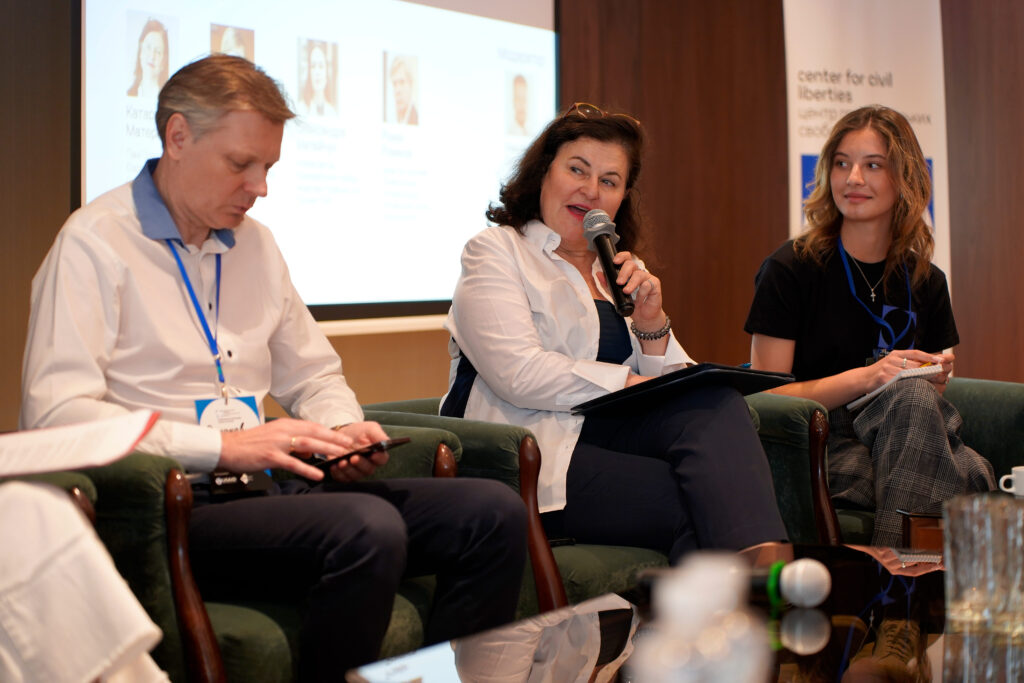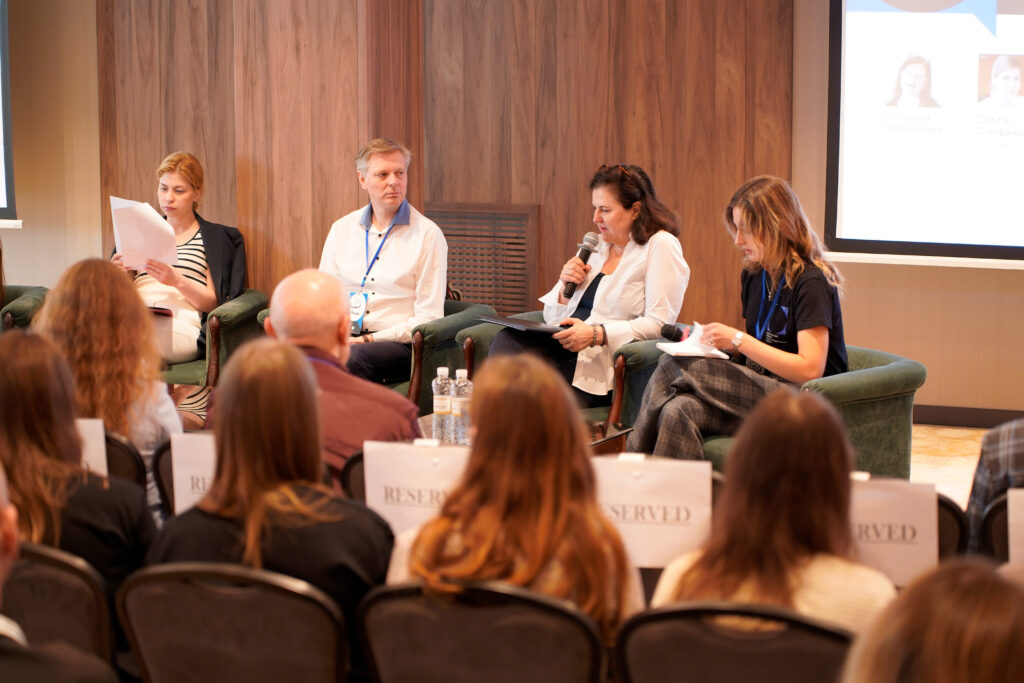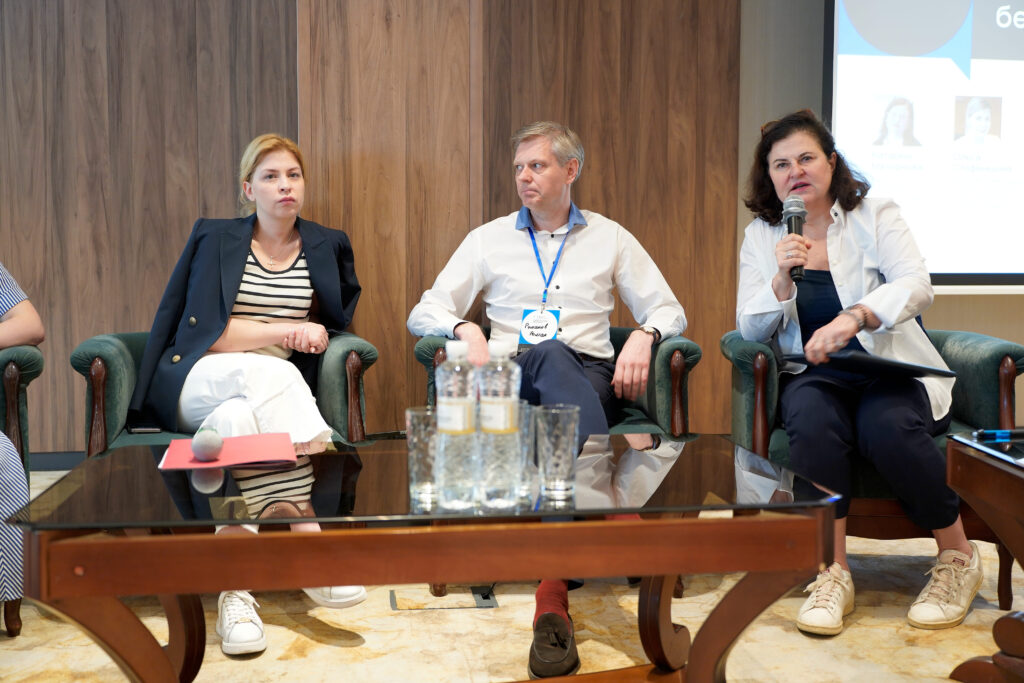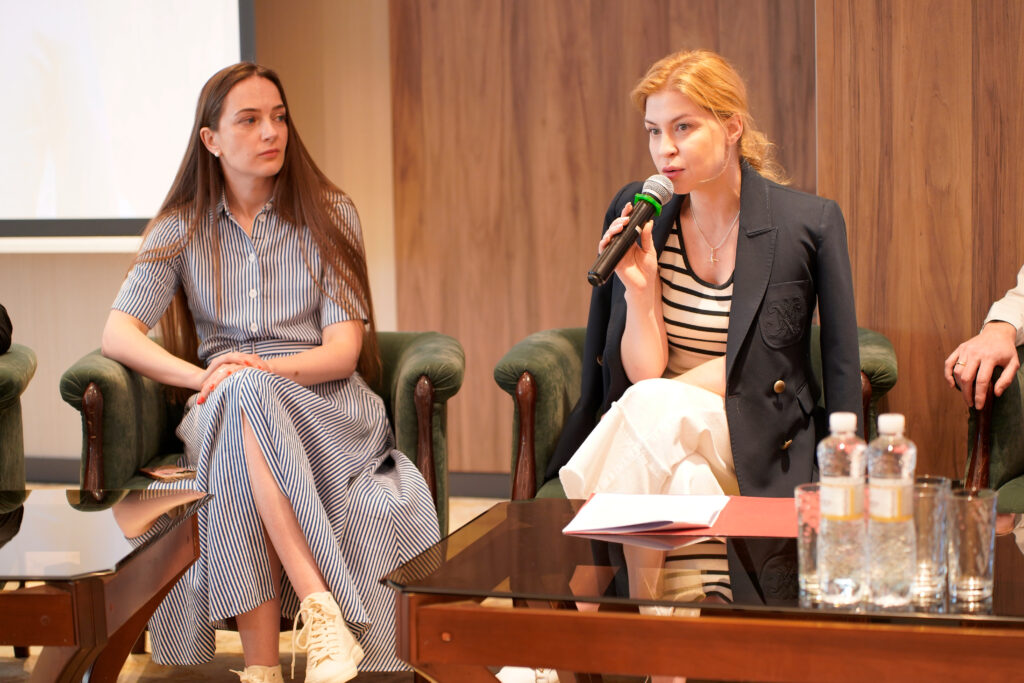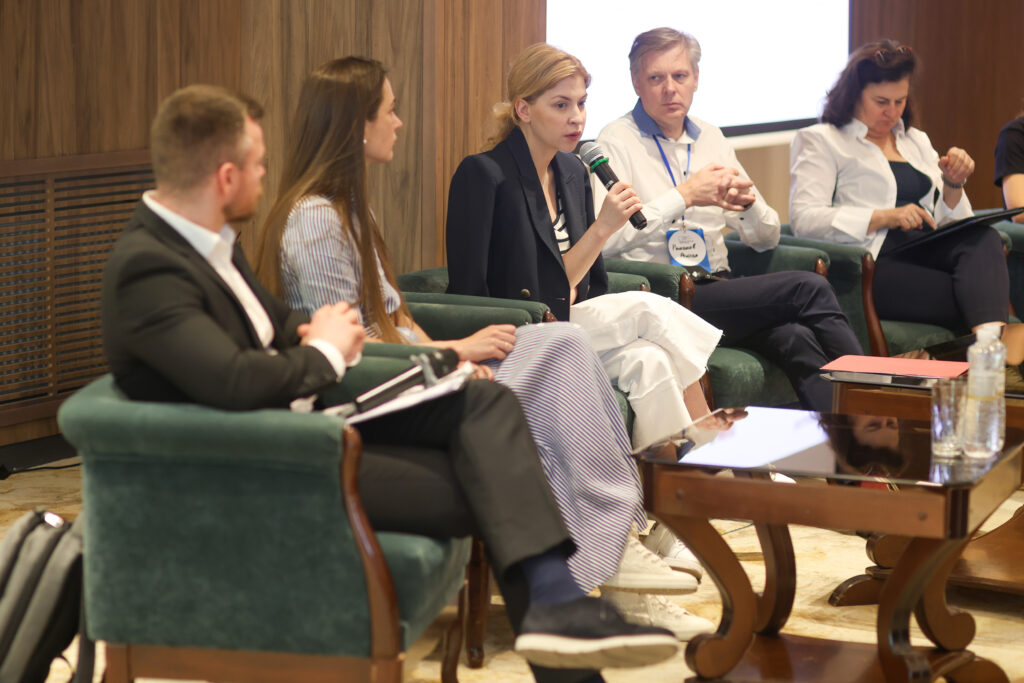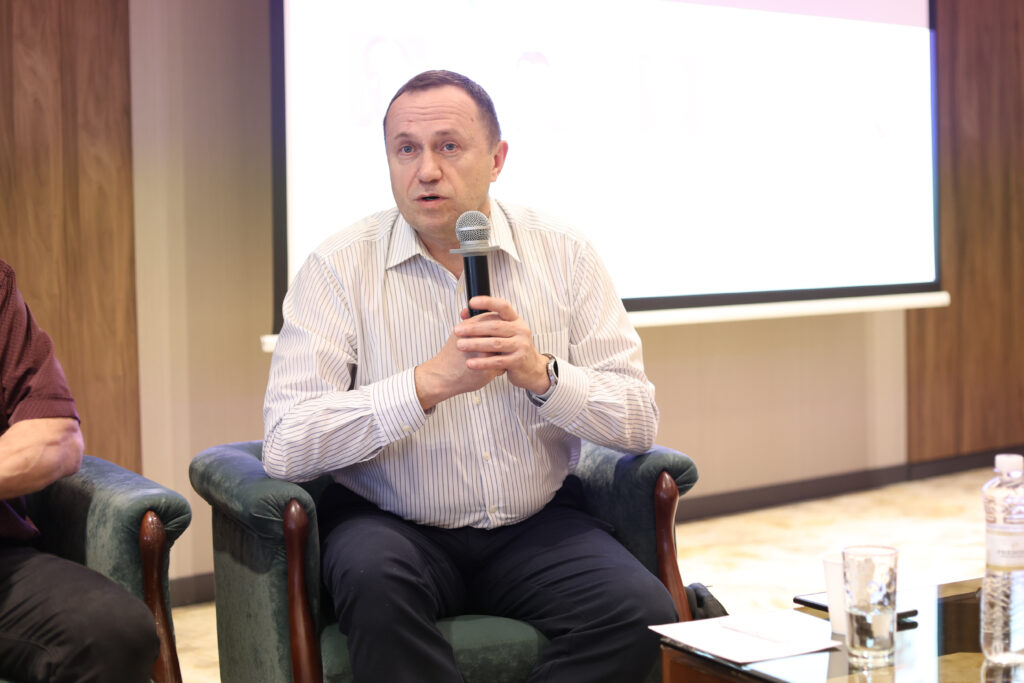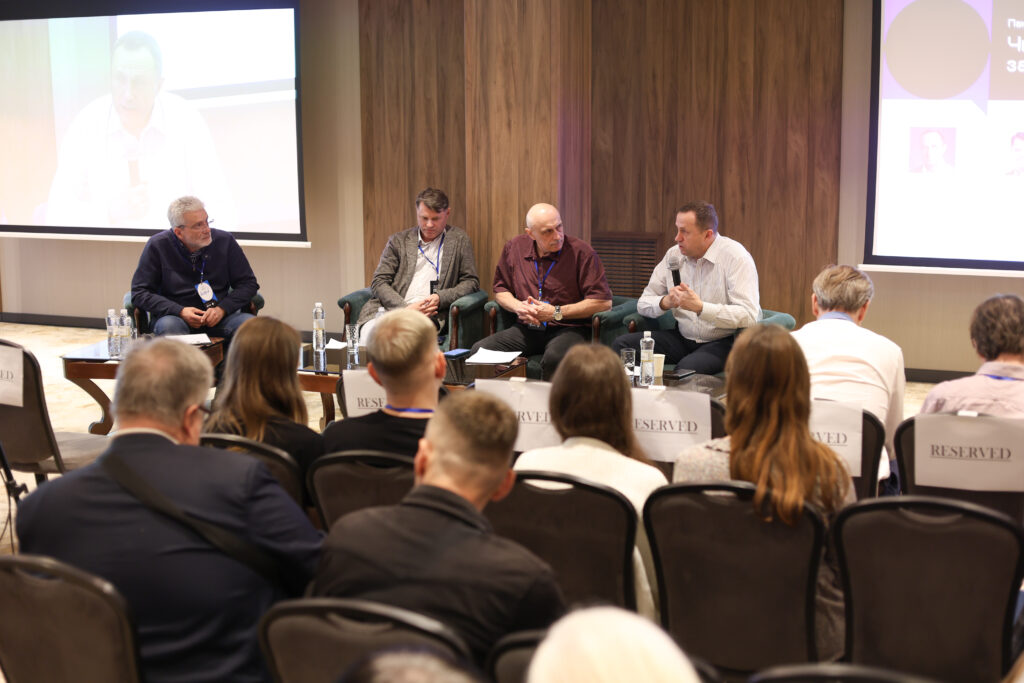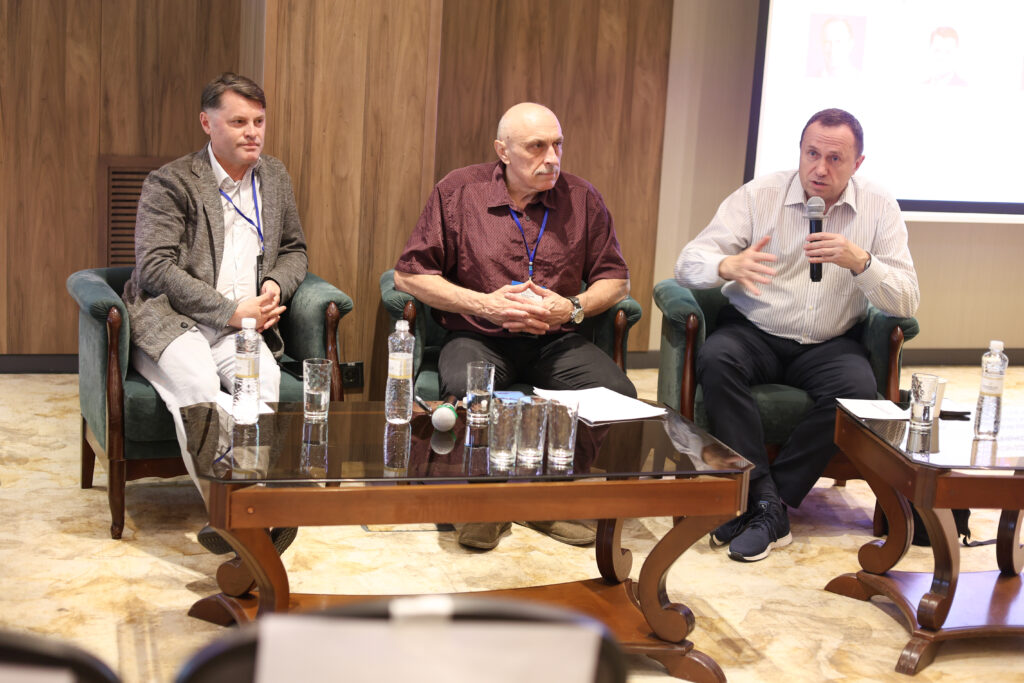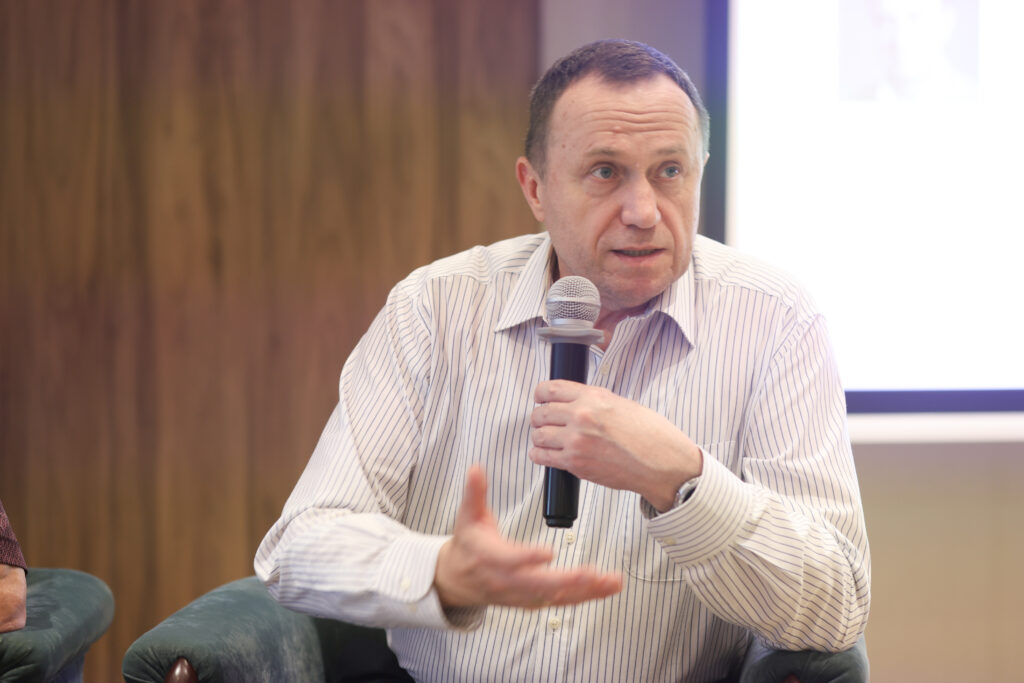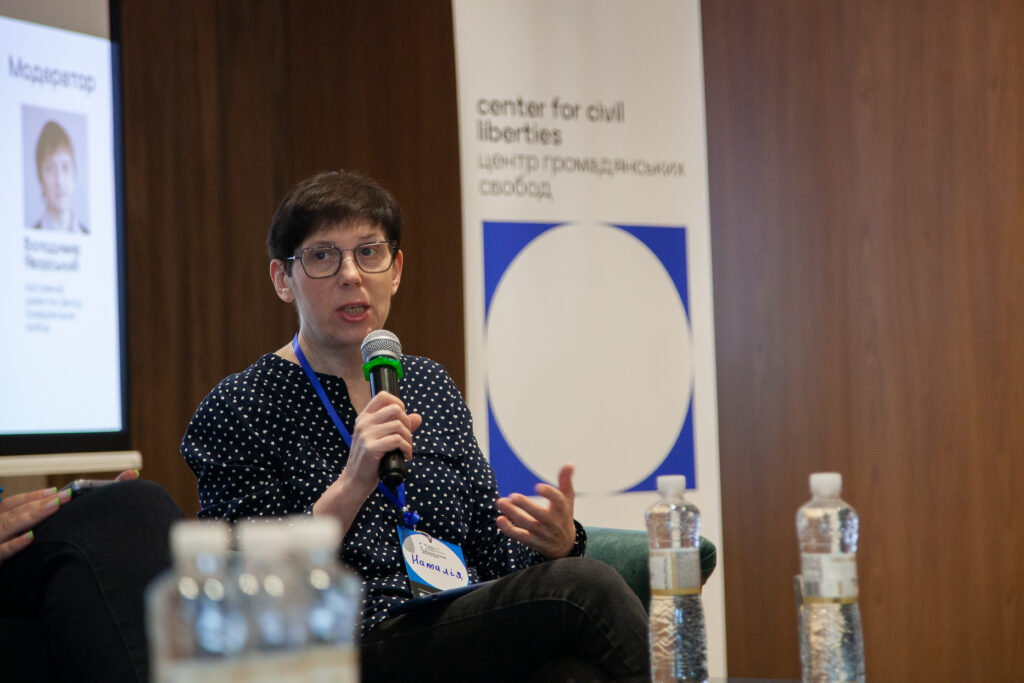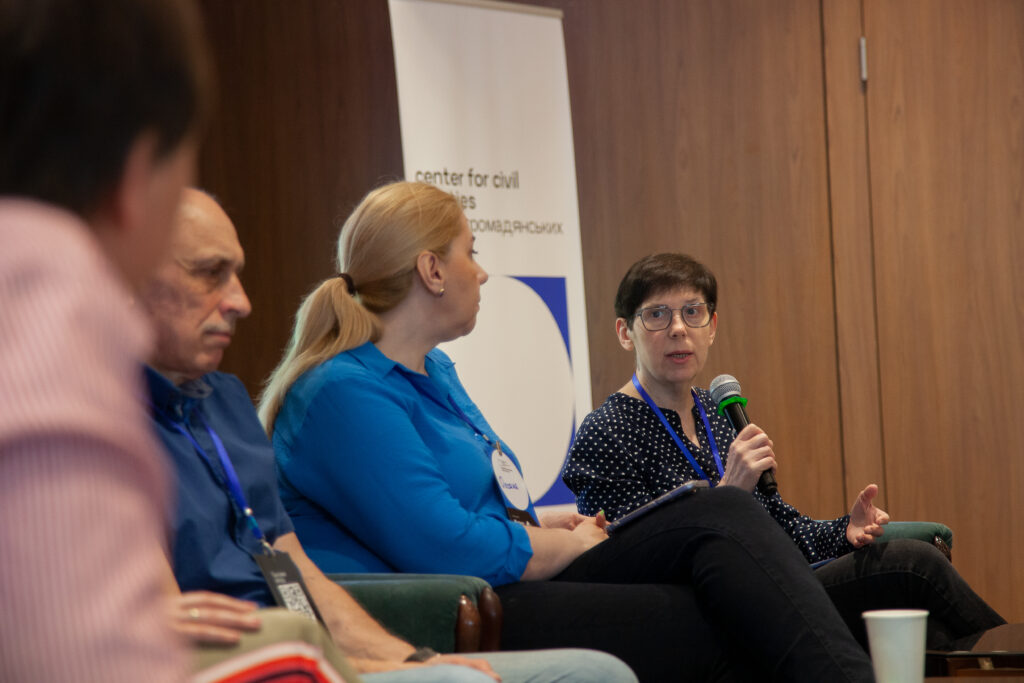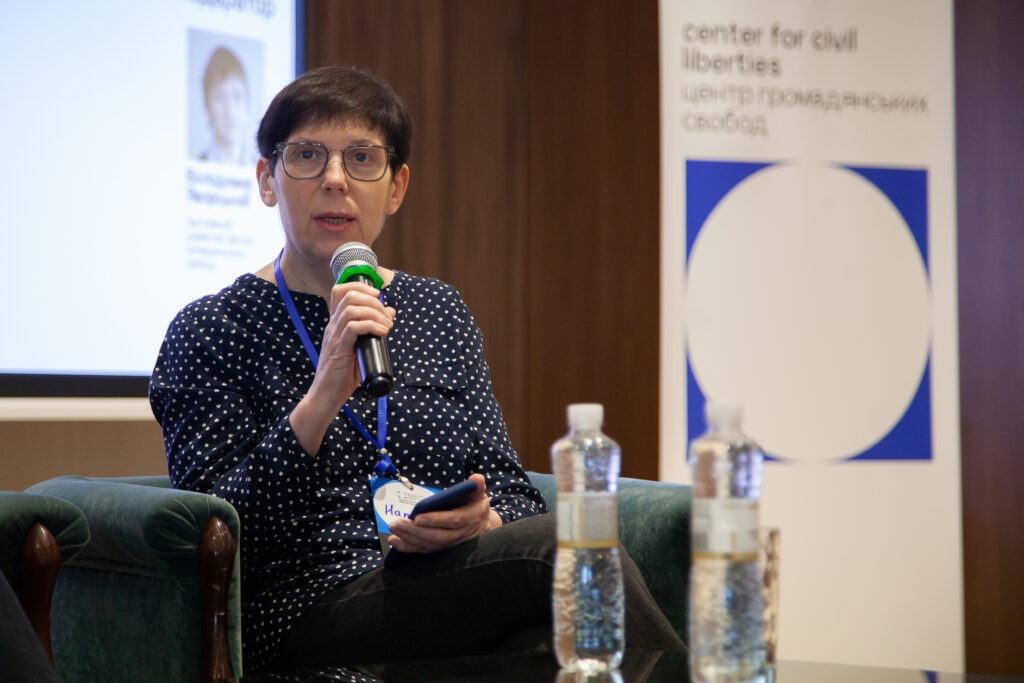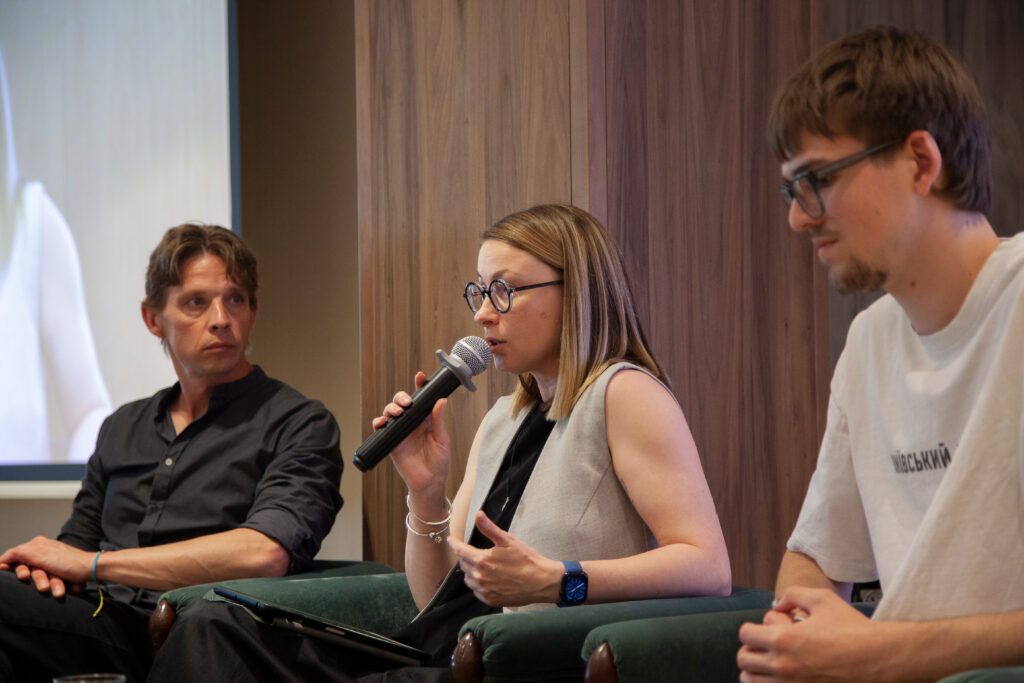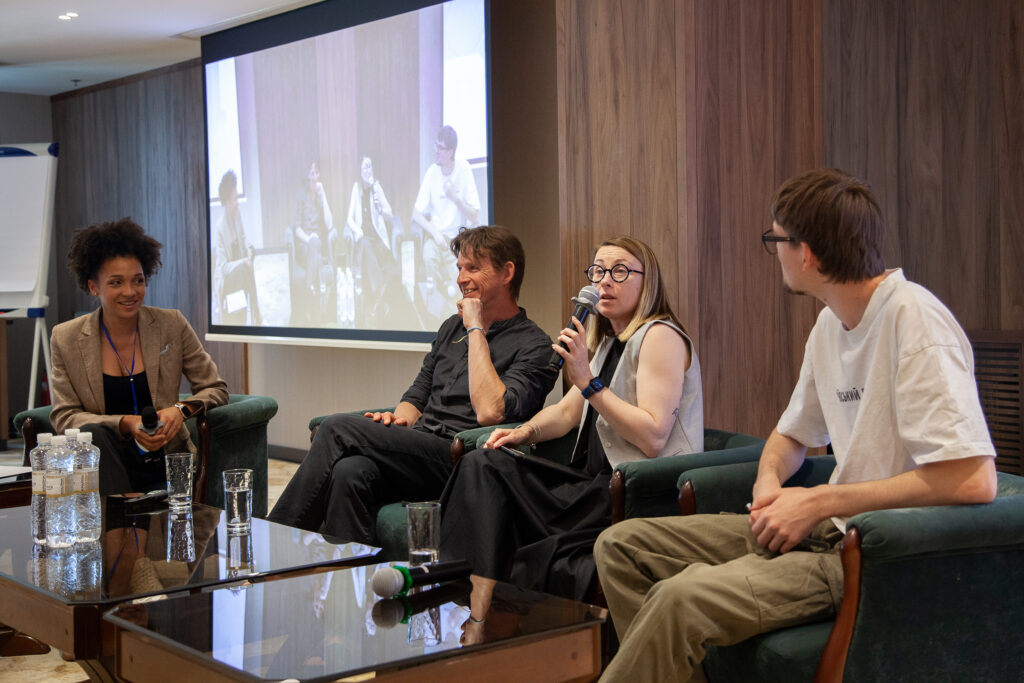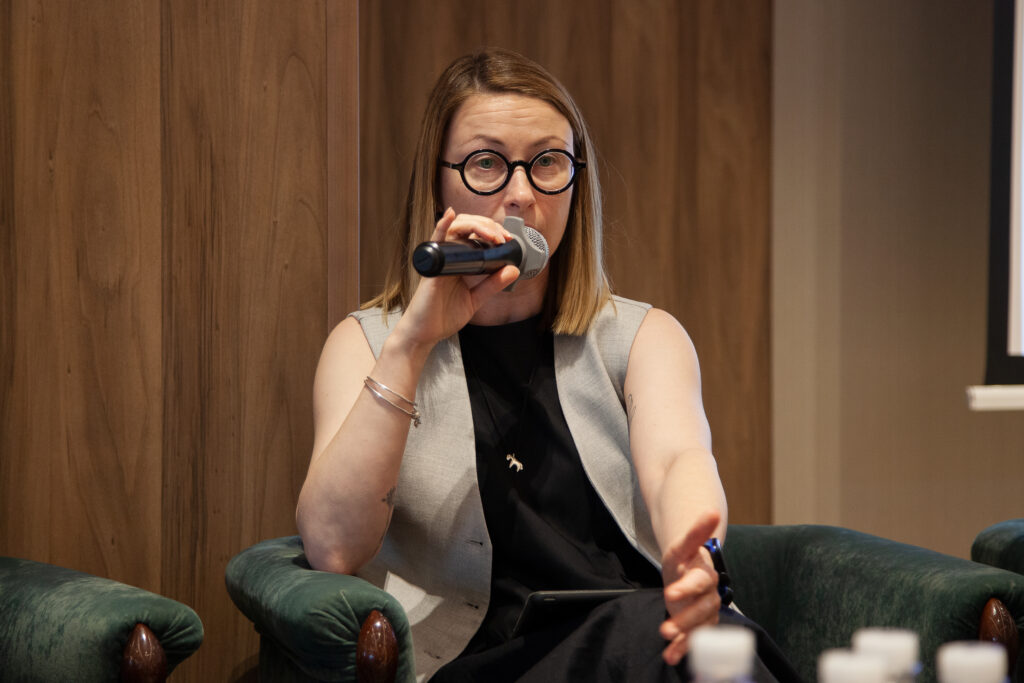Human rights dialogues: what human rights standards Ukraine should ensure to enable European integration
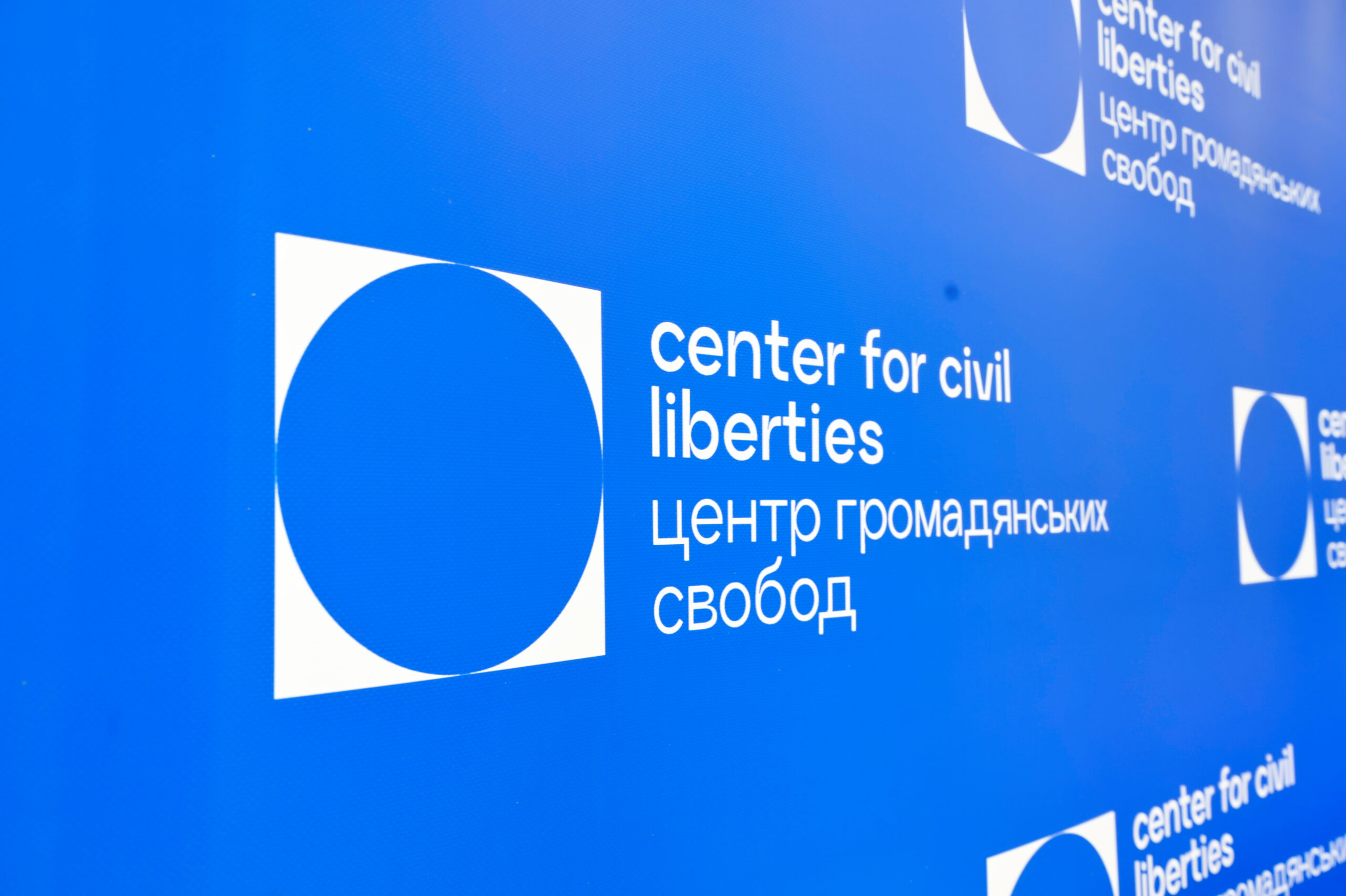
On May 25-26, Kyiv hosted human rights dialogues – a major human rights event organised by the Center for Civil Liberties. It was a series of thematic discussions with Ukrainian human rights activists, officials and specialists in the field of European integration. This year, they discussed the current issue of Ukraine’s accession to the European Union, as official negotiations on this step are scheduled to start in June. The aspects of Ukraine’s European integration which have to do with ensuring the observance of human rights at the national level are extremely important here.
These two days were full of discussions and arguments in search of correct answers to the following questions: is the security of Ukraine possible without human rights? is the Ukrainian human rights protection system ready for EU accession? is Ukraine at risk of losing its freedom? how does the war affect human rights and accession to the EU? freedom of speech and access to information: are Ukrainian standards sufficient for acceding to the EU? does Ukraine need to change its migration policy to accede to the EU?
“The human rights discussion is a fundamental element of Ukraine’s accession to the EU. In wartime, any red lines for limitations on personal freedoms become quite unclear. We cannot separate human rights and security,” aptly said Ambassador of the European Union to Ukraine Katarina Mathernova while assessing the importance of human rights in the context of Ukraine’s security.
Despite the fact that Volodymyr Zelenskyi’s term would end soon, the EU did not raise the issue about whether Ukraine had to hold an election, the Ambassador noted, adding: “It is impossible to hold them when 20% of the national territory is not controlled by the Ukrainian government, for it would mean segregating the population, which lives there. Should Ukrainians themselves decide that they need to hold an election, the EU will support them in this case. The current Russian narrative claims that Zelenskyi is an illegitimate president. However, the EU believes him to be fully legitimate.”
Katarina Mathernova noted that to accede to the EU, a country must have a high degree of protection of human rights and freedoms. “The strength of Ukrainian civil society is one of your main aspects of your path to freedom and European integration. I believe that Ukraine is ready to start EU accession negotiations. However, the reforms must continue,” the Ambassador concluded.
What Ukraine has achieved: the government’s position
The Deputy Prime Minister for European and Euro-Atlantic Integration of Ukraine Olha Stefanishyna told those present about the human rights situation in Ukraine now and what still needed to be done to increase our chances of joining the EU: on 28 February, Ukraine sent an application for EU membership in order “to inscribe a peaceful Ukraine in the memory of Europe.”
Submitting an application on 28 February was a declaration of intent, stating what kind of country we wanted to build, Ms. Stefanishyna noted. “That’s why we continue the reforms and strive for the best even during the war. The country observes the main conventions that Ukraine has ratified, and we have freedom of expression. According to research, 59 percent of Ukrainians are convinced that a democratic system is more important than a strong leader.”
As stated at the event, we are approaching the negotiation process with just four recommendations for improvement. “The EU will test Ukraine’s ability to be flexible and take measures that may run counter to the interests of the ruling circles. The EU never says that Ukraine is not a democracy — the Union already considers our country a member of the European family.
We remember that the EU has high human rights requirements. We take a more responsible approach to the principle of checks and balances. Victory and territorial integrity are priorities for Ukraine, but they cannot be achieved without civil society, transformations, and unrelenting pressure on the state, which is still only becoming capable.”
The strategic plan of Ukraine, according to the deputy prime minister, is to receive more military aid and win the war, and the process of its EU accession is necessary for the country’s survival in the war.
“The war shook Europe, and the first thing it realised with the beginning of the full-scale invasion of Ukraine was, ‘it turns out that one must fight for one’s values. We must do this all the time, nothing should be taken for granted’.”
Freedom for the people: why it matters in war
“War poisons. This happens in any society and this is a challenge We remember that even while putting survival first for obvious reasons, we are fighting for freedom. It is important for us not to forget about this, because the war began in 2014,” maintains the head of the Center for Civil Liberties Oleksandra Matviichuk.
Any time is appropriate for human rights, and especially when a country faces challenges to its freedom and democracy, the human rights activist believes.
“The first task is to defend our state and people, our democratic choice and human dignity in conditions of aggression. And the second task is to carry out this democratic transformation. We do not know whether we are at the beginning, middle or end of the war. We cannot postpone the changes until the post-war period.
Any time is appropriate for human rights. This is not what is written in conventions, declarations and the Constitution; this is the oxygen we need to breathe. The process of breathing and existence depends on the environment in which one is. And I understand how much the space for rights and freedoms is narrowing. Many things are taken for granted – until the moment when you start feeling oxygen shortage.
For the people of Ukraine, freedom is not just a slogan or a definition, it is something for which we pay a very high price every day. We pay it for the freedom not to be a Russian colony, to preserve one’s Ukrainian identity and to have a free, democratic choice. Freedom is when the courts are just and independent, the police are on the side of the citizens, and the people are free.
The strength of Ukrainian citizens is our main path to European integration. When everyone thought that Russia was an invincible enemy, and international organisations began to leave, it was ordinary people who began to do extraordinary things. They have shown to the world that we are stronger than the Russian military machine. Democracy is a life-giving force, because it cannot simply be destroyed. This is the source of energy and development of our country, and we must preserve it.”
Why is it so that not everything looks as good as we would like? Problematic issues of governance, media market and anti-discrimination
“Human rights are an extremely important aspect, they are enshrined in international documents and in the Constitution. Ukraine has a comprehensive system of bodies that are called to ensure they are observed,” notes Head of the Board of the of the Centre of Policy and Legal Reform Ihor Koliushko.
The expert also explains why, in his opinion, we as a country are, after all, lagging behind in matters of European integration: “But the government has failed to create an institutional system for the development of human rights. We have too many administrative powers, but there is no one to shape a development policy for the country. In the EU, this is a job of ministries. According to the reform vision, directorates were supposed to be analytical centres that would perform this function within the ministries. The directorates had to respond to the deterioration of the work of this or that ministry. They don’t do it, so we are slipping on the European integration issue.”
“In our government system, everything is built on top-down instructions. We do not respond institutionally to challenges, and the Ministry of Justice does not directly monitor the exercise of human rights, there is no systematic approach.
The most important human rights are dignity, free expression of views, participation in public life, etc. Ukraine has been able to preserve these basic elements, eve though all presidents wanted to curtail them. But the Ukrainians responded with Maidan protests which they were able to organise, because the country has a middle class, civil society, media freedom, local self-government, and a fairly independent legislature. It was these five factors that made the Maidans possible.”
During the panel on freedom of speech and access to information, head of the NGO Detector Media Natalia Lihachova noted: Oligarch-controlled media were and still are a challenge. The state actively finances oligarch-controlled TV channels, they have encroached into the public broadcasting space. During the war, I do not expect the authorities to show their desire to stop this collaboration. This is why Suspilne, for example, has left the TV marathon. The state is strengthening monopolisation of the information space, although independent media on platforms such as YouTube are still fairly developed in Ukraine. Popularity of these platforms is a different matter. So far, we see that the most popular method of communication with society is TV.
The state did everything in its power to make Telegram the most popular messenger. Although there is no direct evidence that it is cooperating with Russia, there are hints of it.”
Iryna Fedorovych, who leads the Advocacy direction of the Fight For Right BGO, spoke about the standards of protection against discrimination in the EU and Ukraine. And although Ukraine has prohibited discrimination at the legislative level, but European standards are not only about the prohibition, but also about the practical implementation of prescribed formulas.
“In Ukraine, we have a lack of comprehensive government statistics on discrimination to be collated by the state. There is no institution for equality, we are not members of the FRA (Fundamental Rights Association), we do not use well-developed international approaches to collecting information on discrimination. Meanwhile, the mere presence of protection tools does not guarantee their proper functioning or citizens being capable to use them.
The human rights commissioner performs the required minimum tasks, but fails to analyse the wider framework, seemingly unable to cope with his responsibilities and workload. He should implement broader anti-discrimination objectives, but currently lacks financial and human resources for it.
The Human Rights Commissioner of the Verkhovna Rada of Ukraine is supposed to act as the institution for equality, but this office does not work for it, it does not act as an institution that collects and analyses information. Currently, it is NGOs that cover the needs of collecting and analysing data on discrimination on various grounds in Ukraine, as well as producing recommendations, thus serving as an important resource of the state.
Currently, the only way for Ukrainians to get a decision in their legal case is to pass through all the hellish circles of the Ukrainian judiciary and finally reach the ECtHR, because Ukrainian courts are not working. The EU says that it should not be like this.
On the way to the EU, we must carry out a thorough revision of the legislation regarding the protection of human rights, and not just formally transpose texts from EU directives.
To implement protection against discrimination, we need at least to get the police and the prosecution service to cooperate.
When Ukraine worked to liberalise the visa regime, it quickly implemented all measures except those related to human rights issues. Should we do the same during negotiations with the EU, our progress will be slow. We need to promote understanding, we need to thoroughly review the legislation, we need to focus on the entire array of EU directives.”
One can listen to speeches of all speakers at the two-day human rights dialogues at this link.
Center for Civil Liberties operates with the support of the European Union.

